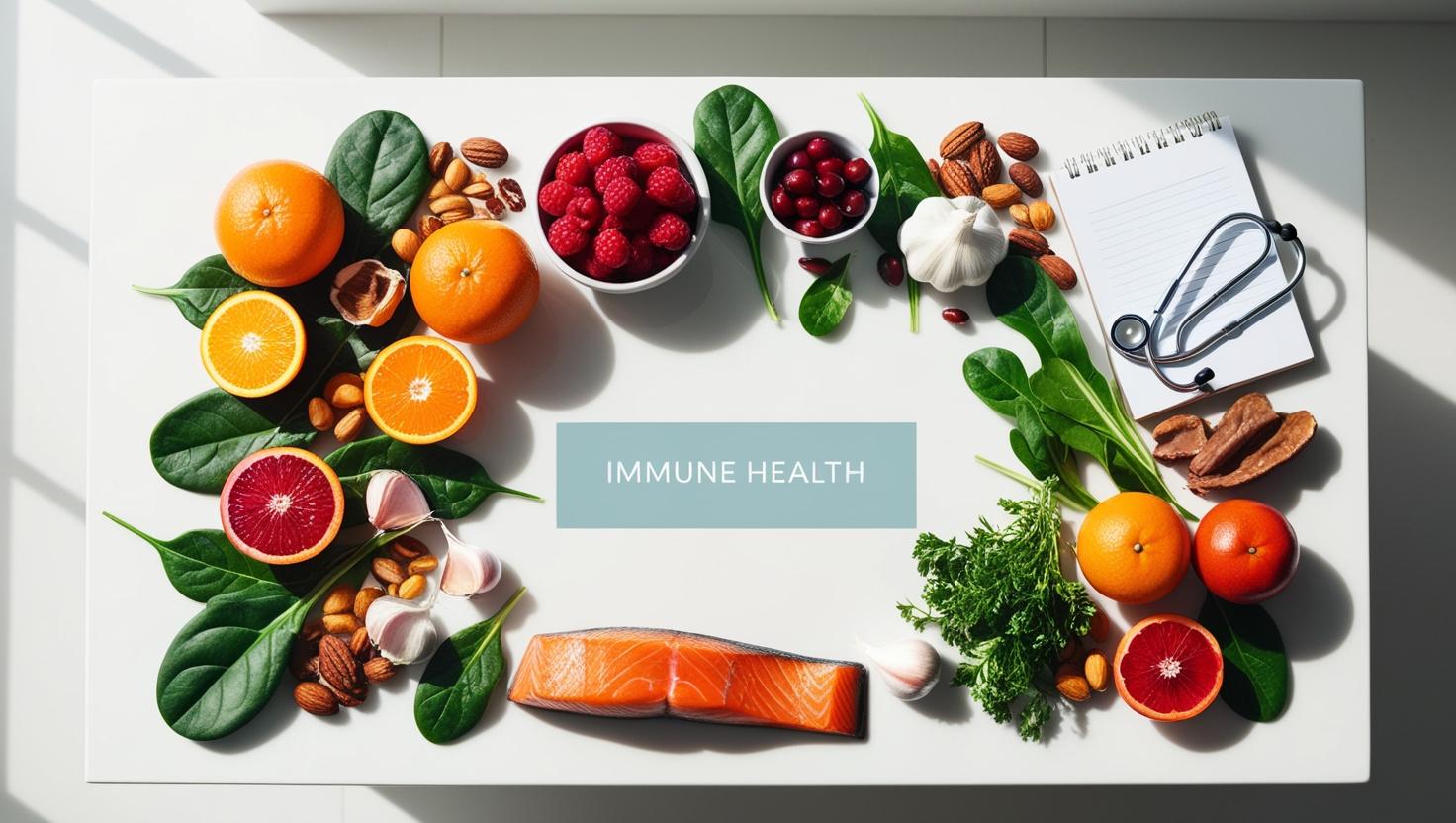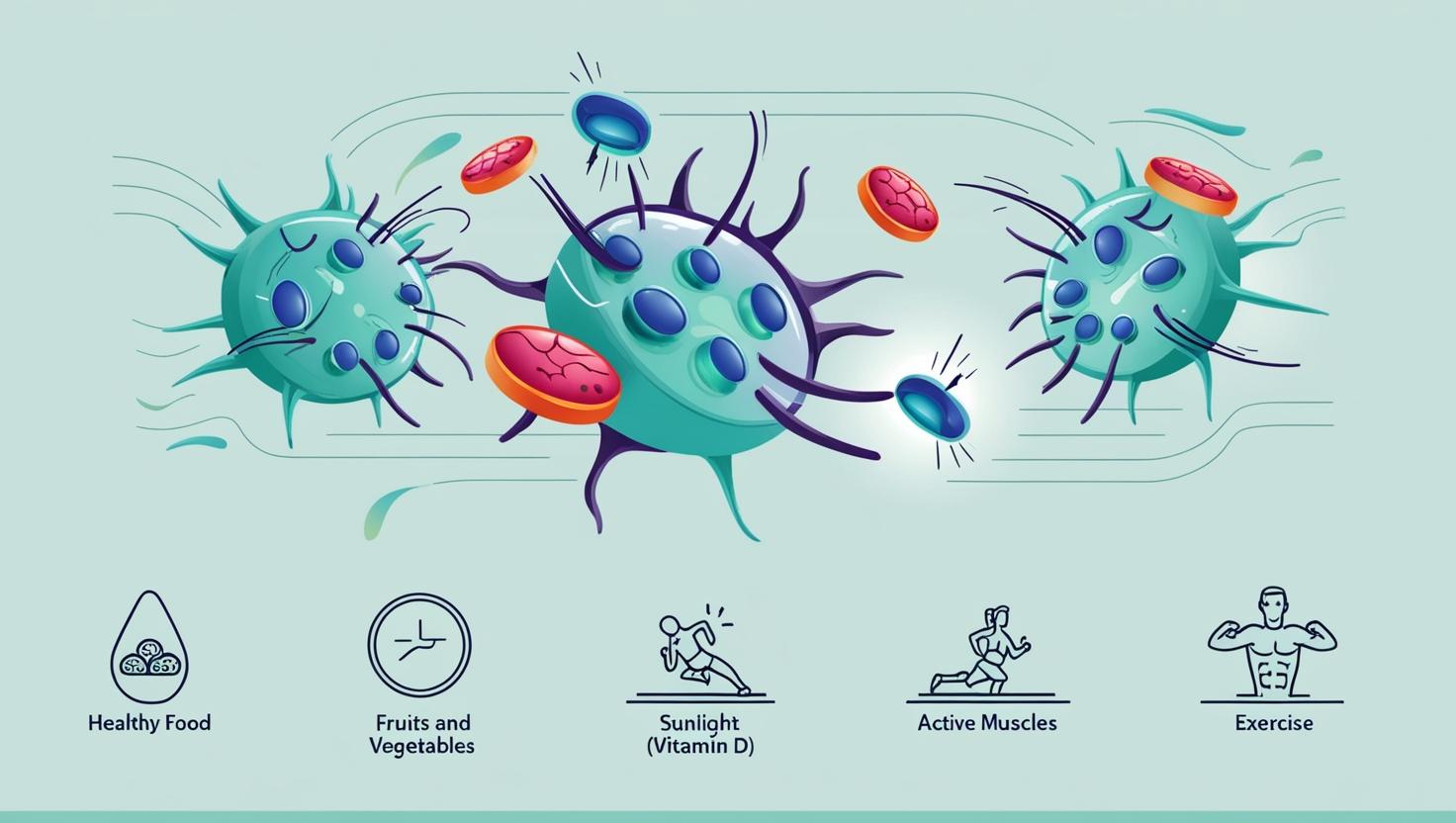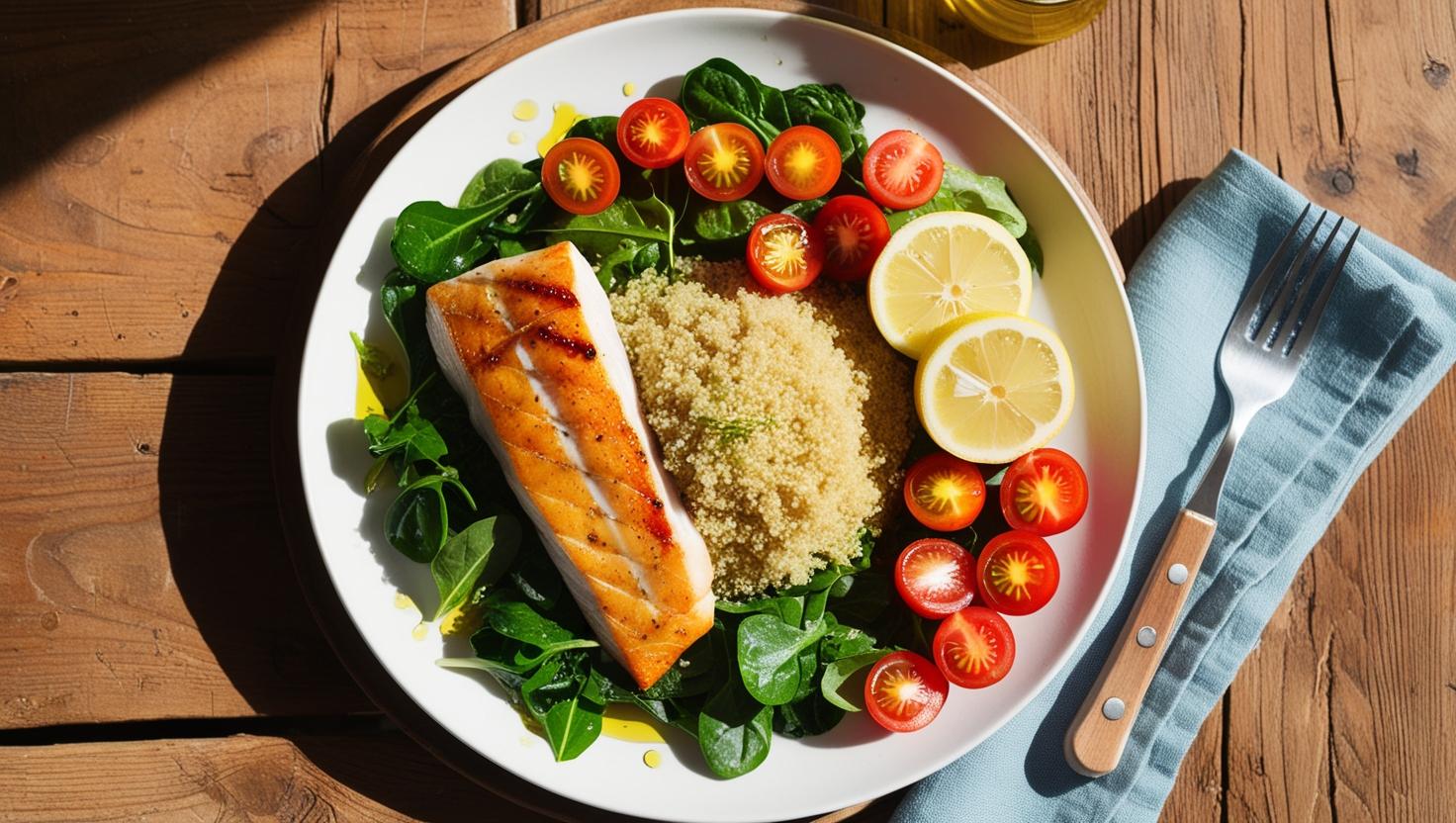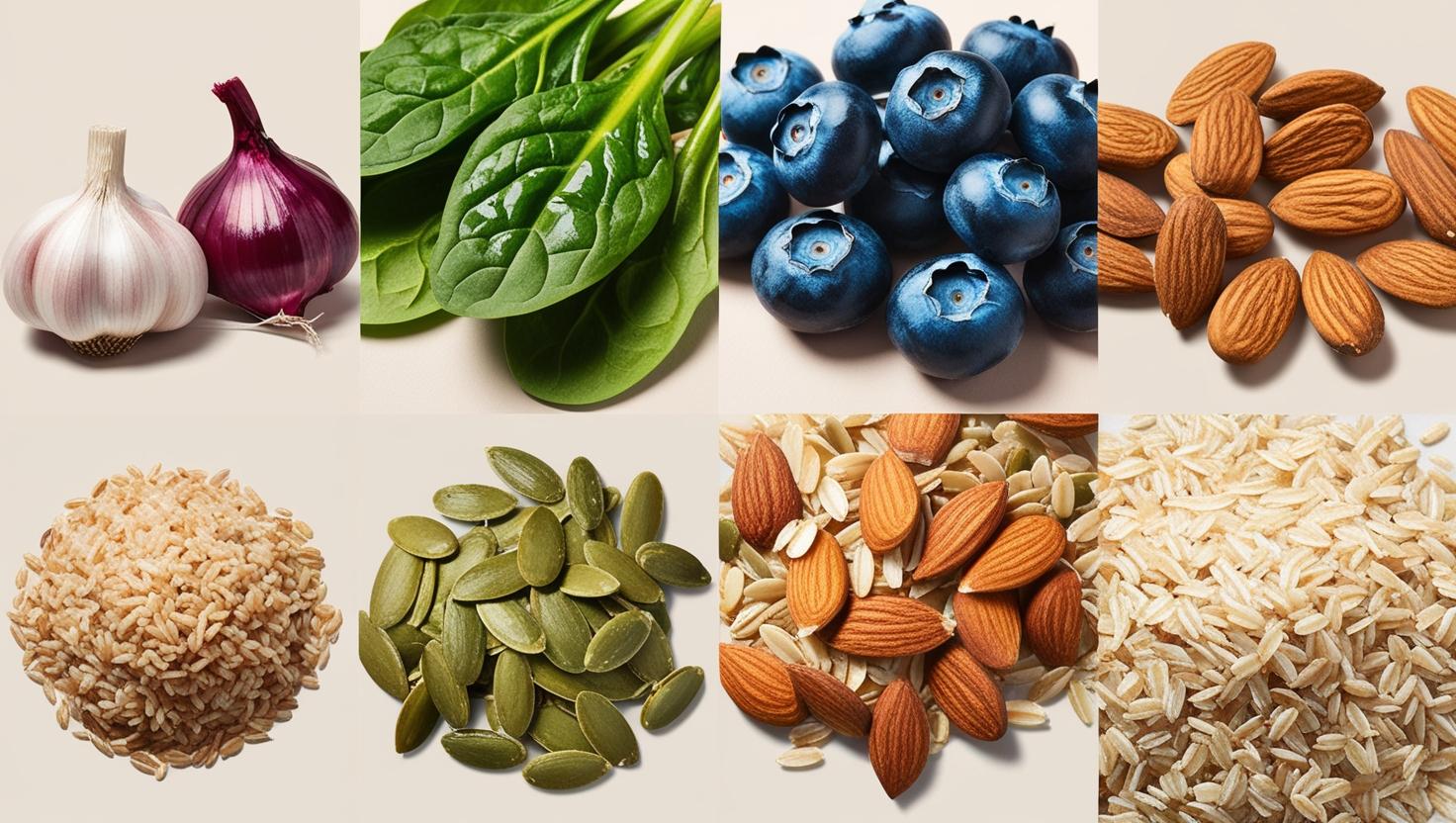- Home
- About Us
- Services
- Primary Care
- Preventative Services
- Transitional Care
- Annual Wellness Exams
- Acute Care Services
- Medical Clearance Examinations
- Chronic Disease Management
- Sports Physicals
- Geriatric Medicine
- Medication Management
- STD & UTI Testing
- Coordination of Care
- Telehealth Services
- Ordering Routine Labs and Scans
- Blog
- Patient Resources
- Contact Us

Mary Huntly APRN FNP-C
Key Takeaways
A nutrient-rich diet plays a pivotal role in supporting immune function and overall wellness.
Incorporating specific foods like citrus fruits, lean proteins, and leafy greens can fortify your body’s defenses.
Supplements, exercise, and stress management are valuable complements to a balanced, immune-boosting lifestyle.
Keeping a strong immune system has never been more important, and the good news is that one of the most effective ways to support your immunity lies in something you do every day – eating! At Trinity Family Practice, we’re passionate about helping Las Vegas residents stay healthy and resilient, and understanding how nutrition affects immune health is key to achieving that goal.
This guide breaks down practical, science-backed strategies to boost your immune system through nutrition. Whether you’re looking for actionable tips or simply want to make better food choices, we’ve got you covered.
Introduction to Immune Cells
The immune system is your body’s defense force, a complex network of cells, tissues, and organs designed to protect you from harmful invaders like bacteria, viruses, and toxins. At the core of this system are specialized immune cells, including white blood cells and T cells, which recognize and attack harmful agents.
But here’s the catch: for these immune cells to function at their best, they need proper fuel. That’s where your diet comes into play. Studies show that nutrition directly impacts immune health, influencing how well your body fights off infections and manages chronic diseases. By understanding how the immune system operates and what it needs to thrive, you can take steps toward long-term wellness.
A healthy diet packed with essential nutrients can significantly strengthen your immune system. Foods rich in vitamin C, vitamin E, and other key nutrients act as powerful allies in your fight for better health. When you nourish your immune cells with the right foods, you’re giving your body a critical advantage in warding off illness and staying resilient through every season.
Understanding Immune Function

Good nutrition is one of the building blocks of a healthy immune system. But immunity doesn’t work in isolation; it responds to a combination of factors, including your environment, genetics, and habits. Proper nutrition acts as the cornerstone that helps all these elements work in harmony.
When you focus on nutrient-dense foods, you’re setting the stage for a more balanced and reactive immune response. Here’s how a few key components contribute to your immune health:
Your diet: A balanced diet packed with whole grains, fruits, and vegetables keeps your immune response sharp.
Vitamin D levels: This essential nutrient, found in fortified dairy, fatty fish, and the sun’s rays, plays a vital role in immune regulation. Deficiencies in vitamin D can weaken your immune defenses and make you more susceptible to illness.
The right balance: A meal made up of lean protein, whole grains, and colorful produce supplies your immune system with the nutrients it needs.
Science Tip: Did you know that even a minor vitamin D deficiency can negatively affect your ability to ward off infections? Including foods like salmon or fortified orange juice in your rotation can make all the difference.
➡️ Looking to optimize your vitamin D levels and nutritional intake? Contact Trinity Family Practice today to schedule a wellness consultation tailored to your lifestyle.
Boosting the Immune Response
What you eat today impacts how well your body handles challenges tomorrow. Consistently choosing whole, nutrient-rich foods helps train your immune system to respond more efficiently and effectively to threats. From antioxidants to healthy fats, certain nutrients work behind the scenes to keep you strong and protected.
Here are practical ways to boost your immunity with food choices that deliver a powerful nutrient punch:
Prioritize vitamin C-rich foods
Vitamin C is a powerhouse when it comes to enhancing immune function. Foods like oranges, grapefruits, and kiwis are packed with this powerful antioxidant.Incorporate vitamin E
Reach for foods like almonds, sunflower seeds, and bell peppers to reap the antioxidant benefits of vitamin E, which supports healthy cells and fights free radicals.Go Mediterranean
Ever heard of the Mediterranean diet? Packed with fruits, vegetables, whole grains, and healthy fats, following this lifestyle has been linked to stronger immune health and reduced risks of chronic diseases. It’s not just delicious; it’s scientifically proven vitality on a plate.Pay attention to research
Clinical trials consistently highlight the importance of a nutrient-dense diet in combating chronic illnesses while supporting a more robust immune system.
Pro Tip: Simple swaps like choosing spinach over iceberg lettuce or swapping soda for green tea can increase your nutrient intake and enhance your immune response.
Foods That Support Immunity
Your pantry is full of nutritious secrets that promote a healthier immune system. In fact, the right foods can act like medicine, reducing inflammation and helping your body fend off threats more efficiently. Stocking up on immune-friendly foods ensures that every meal becomes an opportunity to support your long-term health.
Here’s what to stock up on for maximum protection:
Garlic and onions: These contain antimicrobial proteins that can help fight infections.
Berries and leafy greens: Think blueberries, kale, and spinach. Rich in antioxidants, they neutralize harmful free radicals in your body.
Seeds and nuts: Pumpkin seeds and flaxseeds are rich in omega-3 fatty acids and other healthy fats that contribute to immune health.
Lean protein: Foods like chicken, turkey, and fish provide amino acids that fuel antibody production.
Whole grains: Complex carbohydrates like quinoa and brown rice supply the energy your immune cells need to work efficiently.
Fun Fact: Did you know that garlic can boost your body’s ability to fight off colds? Add minced garlic to your meals for an immunity edge!
Role of Supplements
While real food should be your main source of nutrients, supplements can sometimes be helpful, especially when filling gaps in your diet. For people with specific deficiencies or higher nutrient needs, supplements offer a convenient way to stay on track.
That said, they should be viewed as an enhancement, not a replacement, for good nutrition. Choosing high-quality supplements tailored to your needs ensures your body continues operating at its peak.
Vitamins: A high-quality multivitamin can supply key nutrients like vitamin D and zinc.
Probiotics: Found in supplements or foods like yogurt, probiotics help maintain the balance of beneficial bacteria in your gut, which is closely connected to immune health.
Caution: Before you start taking supplements, consult with a registered dietitian or healthcare provider to ensure they’re right for you.
For those facing deficiencies or heightened risks, supplements can be a game-changer. A systematic review of clinical trials even shows that probiotics significantly reduce the risk of respiratory infections in critically ill patients.
Lifestyle Factors
Remember, immune health isn’t just about what you eat. Lifestyle factors also play a huge role. When combined with proper nutrition, healthy habits create a powerful foundation for lifelong wellness.
Consistency is key—small actions taken daily add up over time and contribute to a more responsive immune system. Here are essential lifestyle strategies to pair with your nutrition plan:
Physical activity: Exercise improves circulation, which helps your immune cells do their job more effectively.
Sleep: Skipping sleep can weaken your immune system. Aim for at least 7–9 hours per night.
Stress management: Techniques like yoga, meditation, and deep-breathing exercises can lower stress levels. Chronic stress, if unmanaged, compromises immune health.
Avoid excess saturated fats: Foods like processed meats can impair immune function when eaten in large amounts.
Rethink your daily habits and notice how slightly healthier routines make you feel more alert, less prone to illness, and more confident in your health.
Consistent Nutrition Fuels Immunity
The link between what you eat and how strong your immune system is shouldn’t be underestimated. By choosing foods rich in vitamins, antioxidants, and other essential nutrients, you’re not just nurturing your body but actively boosting your defenses against illness.
Nutrition is one of the most accessible ways to improve your well-being. It doesn’t require drastic changes—just conscious decisions, one meal at a time. With the right tools and guidance, you can achieve greater energy, resilience, and peace of mind.
Your Next Step Toward Better Health Starts Here
For individuals, families, or businesses in Las Vegas, support for a stronger immune system is just around the corner. Visit Trinity Family Practice today to learn more about fine-tuning your health and nutrition plan with expert guidance. Whether you’re seeking help with your diet, need lab testing, or want to schedule your annual physical, we’re here to help you stay proactive and protected year-round.
POST TAGS :
Trinity Family Practice is dedicated to offering personalized, compassionate healthcare for individuals and families in Las Vegas, with a focus on quality care you can trust at every visit.
Address
Contact
(725) 214-4237






